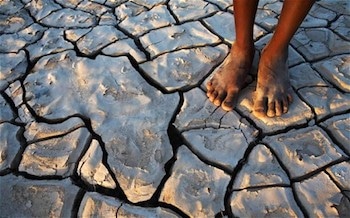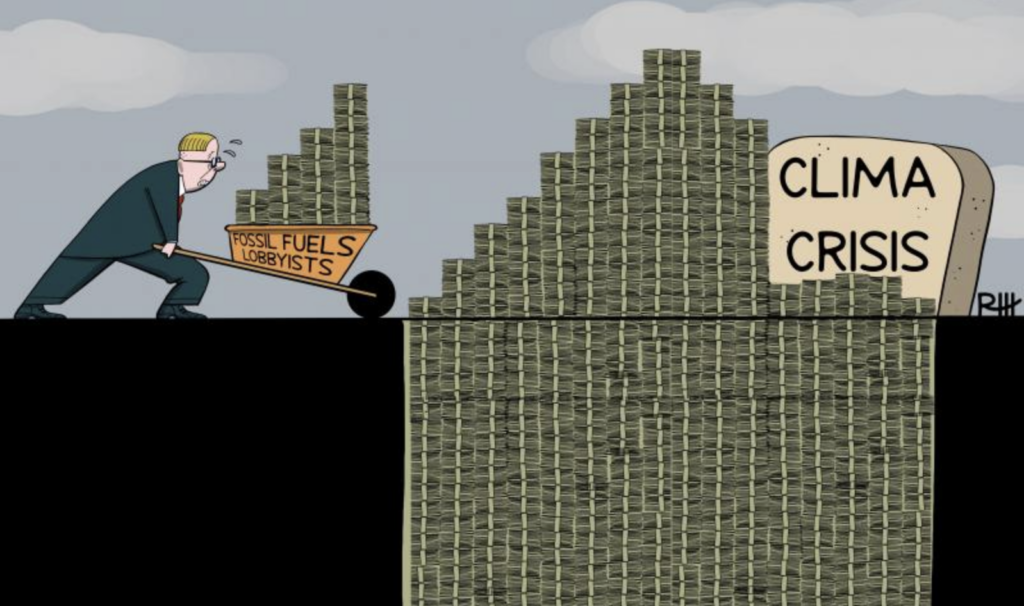For most Western societies, climate change has largely been an “out of sight, out of mind” issue. Even the disasters that we have seen in America – more extreme droughts, floods, hurricanes, etc. – have not been enough to spark meaningful action from the government. But for people in developing parts of the world, the effects of climate change are not only real, but they are severely impeding their way of life right now.
A new report by the Overseas Development Institute (ODI) says that those same developing countries, which also happen to be some of the most impoverished nations in the world, are already experiencing the disastrous effects of climate change at an alarming rate. And because they are so poor, they are unable to fund both anti-poverty initiatives and climate change mitigation programs.
The report lays out the problem bluntly:
The international community has fundamentally failed to put in place at sufficient scale either the financing or the delivery mechanisms needed to strengthen the resilience and enhance the adaptation capabilities of vulnerable people. As a result, government and household budgets in the poorest countries have been left to foot the bill for a threat that originates principally in richer countries.
The United States and Europe, combined, account for nearly half of the global carbon emissions that are fueling climate change. However, they also have the financial resources to lessen the impacts that are felt among their domestic populations.
On the other hand, the report says that countries like Ethiopoa, Tanzania, and Uganda are far too impoverished to devote funds to combating climate change. In the meantime, these countries are experiencing disasters that are making it more and more difficult to survive. The most common problem is the disruption to agriculture, which not only supplies food for these countries, but is also many families’ sole source of income.
As climate change worsens and droughts become more and more severe, food has become more scarce and funds have dried up with the crops. These governments are now forced to choose between sustaining their populations with emergency assistance, or combatting climate change.
While the choice to combat climate change would obviously be more beneficial in the long run, it would come at the expense of lives, and possibly the stability of the government itself. Sadly, no matter which decision is made, the people will suffer for a long time ahead.
Now contrast those real-life scenarios with the United States. Unlike developing countries, we are not dependent upon one small area for our food supply. If a drought in California wipes out a crop, buyers simply get their goods from a different location. The government steps in with subsidies to help the farmer pay workers and support his family.
There’s no real consequence outside of the immediate effect on the farm owner and the retailers. Consumers may pay a slightly higher price, but that isn’t enough to get them to understand and appreciate what is happening to the climate on a larger scale.
As mentioned above, the countries that are able to pay for both climate change mitigation programs and to fight poverty at home are the ones who are responsible for a large portion of the emissions that are exacerbating the problems.
This is why the ODI makes the case that these countries need to be contributing to larger mitigation funds to help those countries that are unable to do it on their own. The United Nations has already called on 125 countries to help contribute to a $15 billion fund to help impoverished nations battle the threats from climate change – threats that can be partially blamed on the emissions-heavy countries in the West.
Though the problem is easier to ignore in Western countries now, the plight of those in impoverished nations will soon be felt closer to home. It is estimated that as much as 10% of the global population – roughly 150 million people – will be forced out of their home areas due to climate change.
Once the great climate change migration begins, not only will the problem be too large to ignore, but it may already be too large to mitigate.
Subscribe to our newsletter
Stay up to date with DeSmog news and alerts







